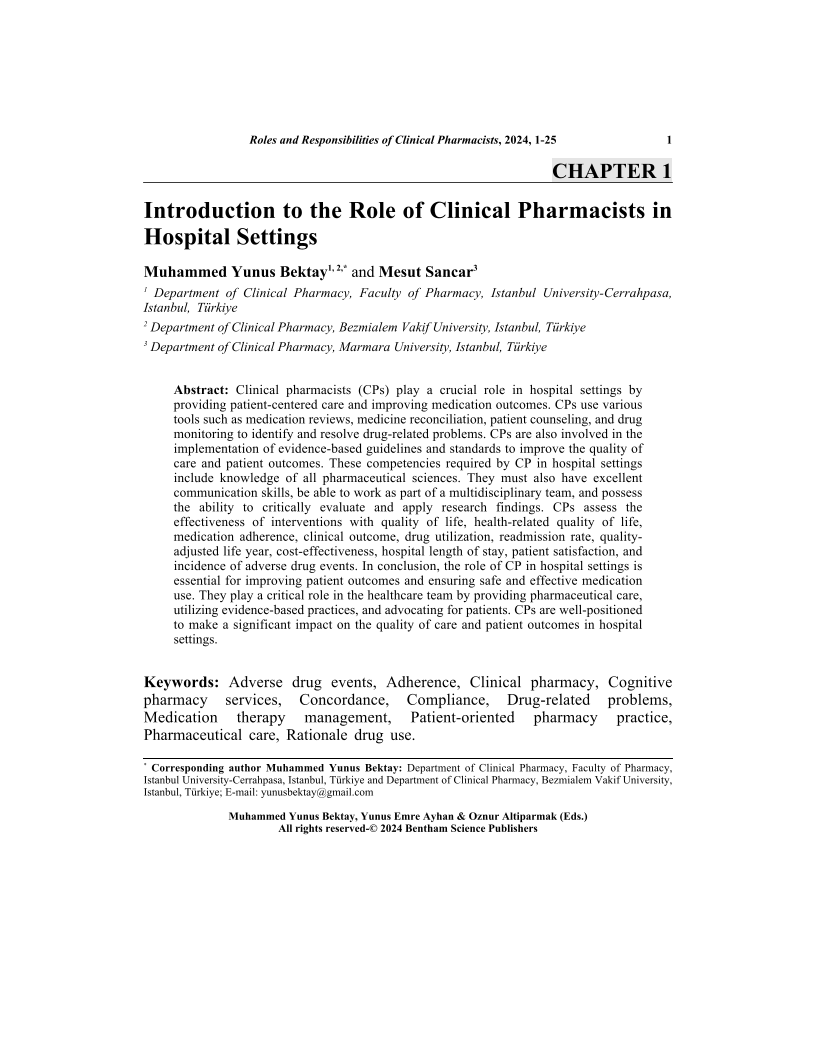Introduction to the Role of Clinical Pharmacists in Hospital Settings

- Authors: Muhammed Yunus Bektay1, Mesut Sancar2
-
View Affiliations Hide Affiliations1 Department of Clinical Pharmacy, Faculty of Pharmacy, Istanbul University Cerrahpasa, Istanbul, Trkiye 2 Department of Clinical Pharmacy, Marmara University, Istanbul, Trkiye
- Source: The Roles and Responsibilities of Clinical Pharmacists in Hospital Settings , pp 1-25
- Publication Date: September 2024
- Language: English
Introduction to the Role of Clinical Pharmacists in Hospital Settings, Page 1 of 1
< Previous page | Next page > /docserver/preview/fulltext/9789815256741/chapter-1-1.gif
Clinical pharmacists (CPs) play a crucial role in hospital settings by providing patient-centered care and improving medication outcomes. CPs use various tools such as medication reviews, medicine reconciliation, patient counseling, and drug monitoring to identify and resolve drug-related problems. CPs are also involved in the implementation of evidence-based guidelines and standards to improve the quality of care and patient outcomes. These competencies required by CP in hospital settings include knowledge of all pharmaceutical sciences. They must also have excellent communication skills, be able to work as part of a multidisciplinary team, and possess the ability to critically evaluate and apply research findings. CPs assess the effectiveness of interventions with quality of life, health-related quality of life, medication adherence, clinical outcome, drug utilization, readmission rate, qualityadjusted life year, cost-effectiveness, hospital length of stay, patient satisfaction, and incidence of adverse drug events. In conclusion, the role of CP in hospital settings is essential for improving patient outcomes and ensuring safe and effective medication use. They play a critical role in the healthcare team by providing pharmaceutical care, utilizing evidence-based practices, and advocating for patients. CPs are well-positioned to make a significant impact on the quality of care and patient outcomes in hospital settings.
-
From This Site
/content/books/9789815256741.chapter-1dcterms_subject,pub_keyword-contentType:Journal -contentType:Figure -contentType:Table -contentType:SupplementaryData105

